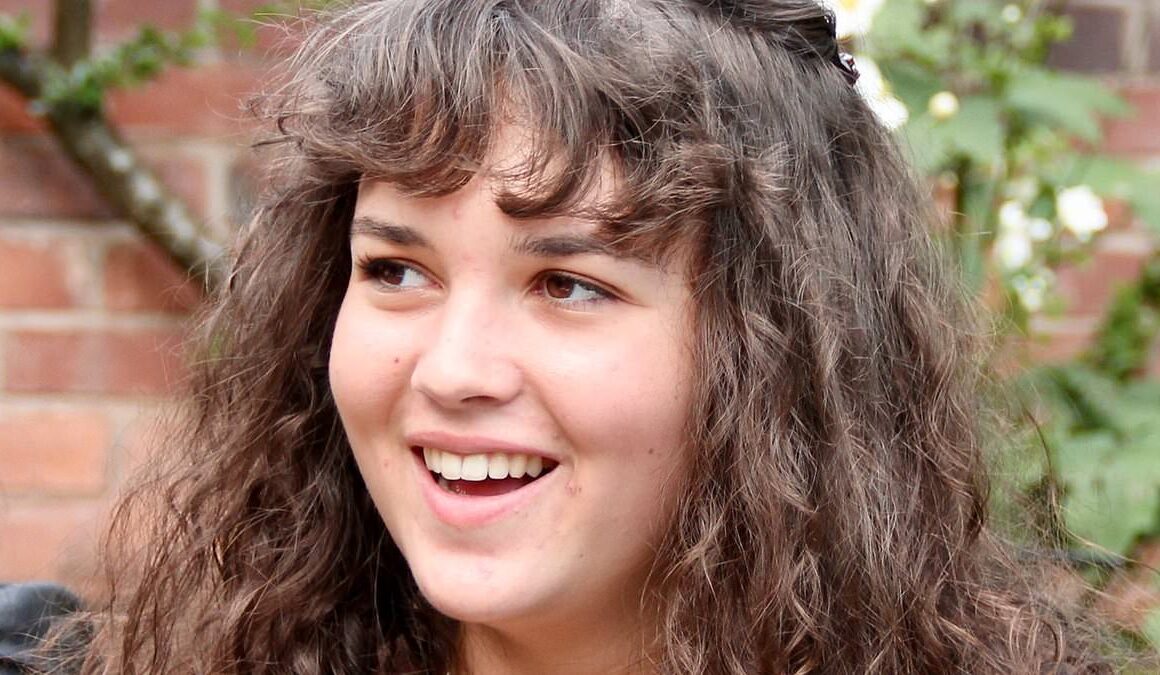A senior doctor pleaded with a young woman suffering from severe chronic fatigue syndrome to remain in hospital rather than go home, an inquest heard.
Maeve Boothby O’Neill, 27, had suffered with myalgic encephalomyelitis (ME) for a decade before she died at home in October 2021.
Miss Boothby O’Neill had been admitted to the Royal Devon & Exeter hospital three times in six months, but was said to have refused a fourth admission because she felt there was no prospect of treatment or cure for her condition, the inquest heard.
It was during her second admission, between May and June, that she told doctors she wished to be discharged and to continue treatment at home in Exeter.
In the last few months of Ms Boothby O’Neill’s life she was confined to a bed, unable to chew food and had difficulty drinking and sitting, according to the inquest.

Maeve Boothby O’Neill, 27, (pictured) was left bedridden and unable to eat in the final months of her life due to the severity of her myalgic encephalomyelitis (ME)

Sean O’Neill, a journalist for The Times, pictured with his daughter Maeve who died in October 2021
Giving evidence at the inquest in Exeter, Devon, Dr Kashyap Patel, a consultant in diabetes and endocrinology, said he tried to persuade the young woman to stay on his ward, but could not stop her from leaving.
‘That was tough, and I wasn’t expecting that. I was very honest and said I didn’t know why she wanted to go home,’ he said.
‘I was prepared to keep her in as long as was needed. There was no intention from my side to send her home because it was a very difficult situation we were in.
‘It was made very clear to me by an experienced occupational therapist later on that she required 24-hour care.’
The consultant also spoke with Ms Boothby O’Neil’s mother, Sarah Boothby, whilst seeking advice from social workers, occupational therapists, doctors as well as her GP Dr Lucy Shenton.
‘I said, “please stay”. I found it very hard, but I also understood her point of view that she felt hospital was not the right place for her,’ he said.
‘I am a very persuasive consultant. I tried speaking to Sarah as well. I understood both sides and I had a very frank chat with Sarah that she couldn’t manage.
‘She was very clear she couldn’t manage, Maeve knows you can’t manage, but still wanted to go home.
‘I spoke to safeguarding because Maeve wanted to go home and her mum struggled, but she wanted to support her daughter.
‘We offered respite, but Maeve wasn’t keen on that. The options were getting limited.’
At the time, the 17-year-old was being fed via a syringe into her mouths, with hospital records showing a ‘slow and steady improvement’ in her daily calorie intake.
Dr Patel said Miss Boothby O’Neill remained in hospital while her intake of calories increased, and an urgent care package organised.
‘She expressed her wish to be discharged home as soon as possible irrespective of whether the long-term care package was in place,’ he told the inquest.
‘Maeve also stated she was happy with the care [her] mum has provided and felt safe going home and appreciated her mum was under significant strain and would like her to have some support long-term.
‘Maeve also agreed to meet her social worker to plan her long-term care.
He added: ‘Maeve was able to demonstrate a capacity to make her own decisions about her care and her discharge destination.

Miss Boothby-O’Neill had been admitted to the Royal Devon & Exeter hospital (pictured) three times, during her second visit she told doctors she wished to be discharged, the inquest heard
Dr Patel told the inquest the ‘only reasonable option’ in the short term to fulfill Ms Boothby O’Neill’s wish to go home was to discharge her with the urgent care team and extra support from her mother.
Asked if he could have done any more for her, Dr Patel replied: ‘I found it very tough and difficult, and it is often the case with any medical professional when someone is making seemingly irrational choices.
‘The situation becomes how best we can facilitate the choice as best we could.’
He added: ‘If I had known the future, I maybe would have tried my extreme persuasion skills, but I did not know the future. Had I known that I would have definitely tried.’
The two-week inquest continues.









